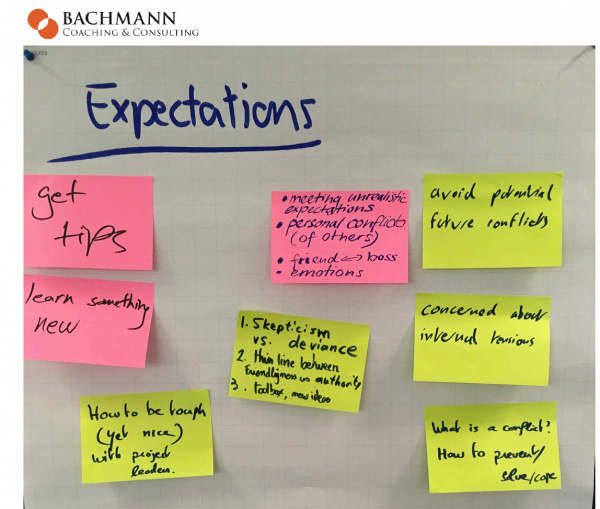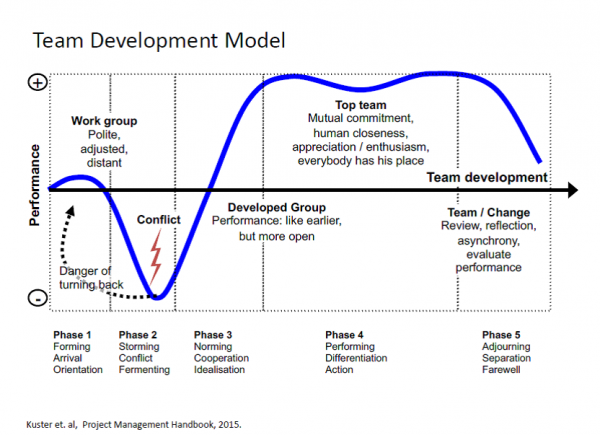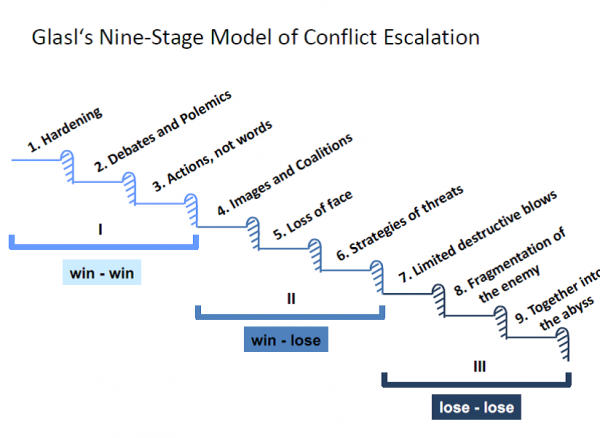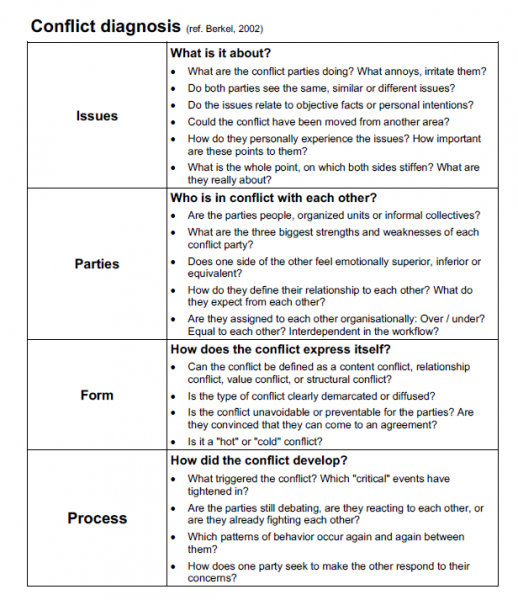Conflict- and Leadership Management
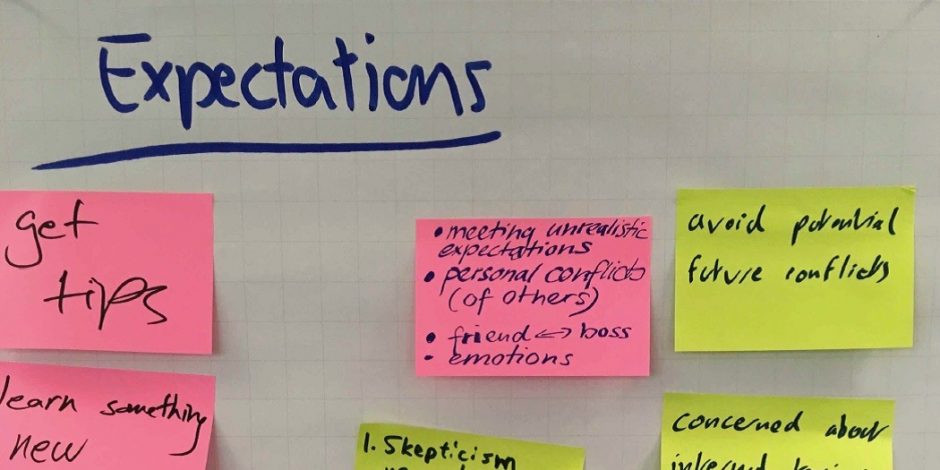
Workshop for Project Leaders at PlanetS
When scientists make the transition to leadership or managerial positions, competences are required that are usually not part of their specialised training.┬Ā The Academic Platform has therefore organised a 2-day workshop on conflict- and leadership management. It took place in Bern in December 2018 and June 2019.
By Nadine Afram
The workshop coach Christian Bachmann is┬Āa coach in industry, as well as in academia. All the images in this article were taken from his presentation.
The first part of the workshop focused on the theoretical concepts of conflict- and leadership management, while the second part included practical case studies.
With the perspective of a postdoc, I was also present during both workshops and it was interesting to see what preoccupies our project leaders.
What surprised me most was their common experience that being the leader is often a very lonely position. As a postdoc or PhD student we perceive our supervisors as very busy and attending many meetings, but the decision-making is often a lonely process.
One very strong (and probably quite unpopular) advice from our workshop coach was that project leaders (or professors) should get used to delegating their research, since leading is almost a full-time job with a workload of 90%-100%. Project leaders may often feel frustrated at the end of the day if ŌĆō in their opinion – they havenŌĆÖt done any ŌĆśreal workŌĆÖ (meaning ŌĆśscienceŌĆÖ to them), and should therefore come to accept that research is mainly done by their postdocs and PhD students, who they lead and supervise. There were varying opinions on that advice.
It was nice to see how this workshop offered a platform for the project leaders to discuss with their peers, and how they enjoyed exchanging experiences. During both workshops, they actively participated, and took notes.
The first part included theoretical concepts, such as the definition of a conflict and its diagnosis. A large part of leading is to know how to avoid conflicts, and mainly, if they happen, how to deal with them. Here, I will only pick a few elements of the workshop that I found particularly interesting:
- The ŌĆśteam development modelŌĆÖ was introduced, which I found useful for academia: whenever a team is built, there are four phases (see figure below): forming, storming, norming, performing. Now, because teams in academia change quite often, the forming phase takes place many times! Whenever a new PhD student or postdoc joins the team, the group has to be re-formed. This means that it should be clear how work and duties are divided. The lines of reporting should be clear as well. Does the PhD student first report to the postdoc or directly to the professor/project leader? What are the rules? This should always be re-established by the leader.
- There are different types of communication (low context and high context) which stem from cultural differences. These can cause conflicts.
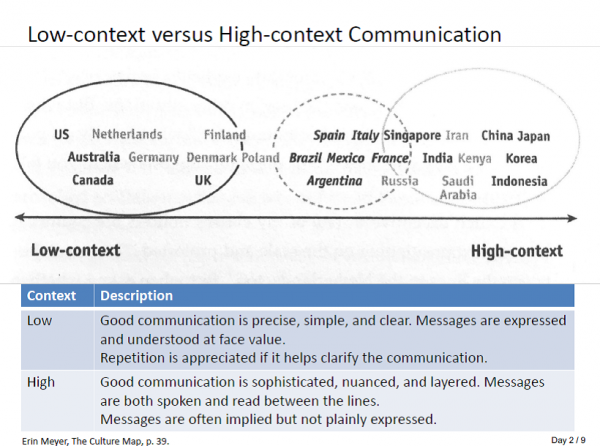
- There are two main types of conflicts: the cold one and the hot one:
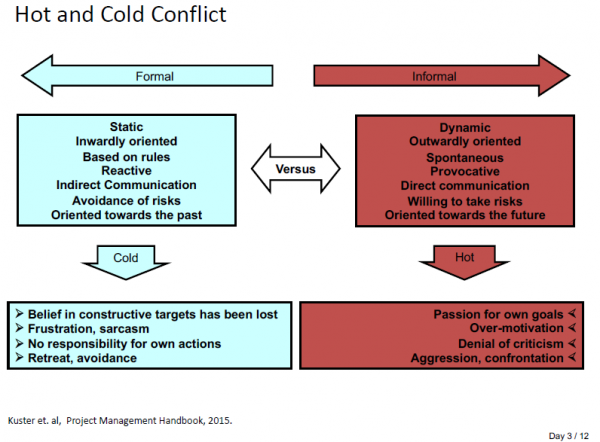
- There are different ways to act in a conflict, and all of them can be right in certain circumstances. Of course, the win-win solution is the best.
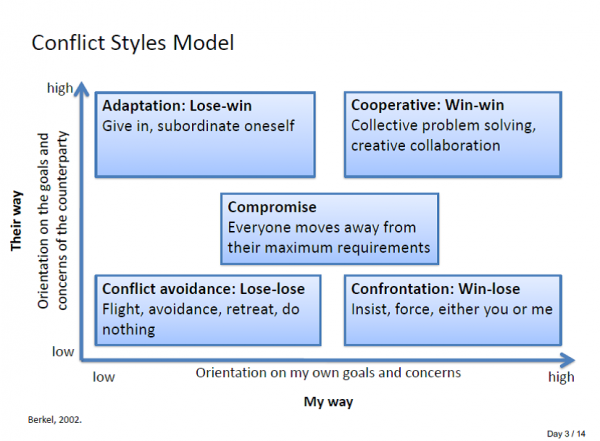
- Diagnosing the stage of a conflict is crucial for taking the right measures to deal with it:
- If you are dealing with a conflict yourself, it might be worth analysing it:
The second part of the workshop dealt with example conflict cases and their analyses.
At the end of the workshop, I asked our coach, Christian Bachmann, what his impression was of our group:
ŌĆ£What impressed me was the openness towards the topic itself and towards the different influencing factors, but also the dialogue that has developed among the seniors.
It was certainly very special that many project leaders (including the director) of PlanetS were present at both workshops. That says a lot about the organizational culture and the sense of responsibility they have for the team culture.ŌĆØ
Categories: Internal Newsletter, Uncategorized

